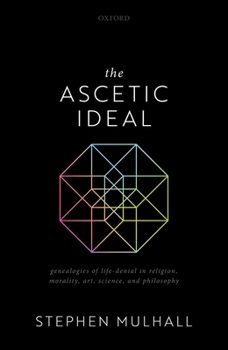The Ascetic Ideal: Genealogies of Life-Denial in Religion, Morality, Art, Science, and Philosophy
In The Ascetic Ideal, Stephen Mulhall shows how areas of cultural life that seem to be either essentially unconnected to evaluative commitments (science and philosophy) or to involve non-moral values (aesthetics) are in fact deeply informed by ethico-religious commitments, for better and for worse. The book develops a reading of Nietzsche's concept of 'the ascetic ideal', which he used to track the evolution, mutation, and expansion of the...
Format:Hardcover
Language:English
ISBN:0192896881
ISBN13:9780192896889
Release Date:October 2021
Publisher:Oxford University Press
Length:312 Pages
Weight:1.38 lbs.
Dimensions:1.0" x 6.3" x 9.3"
Related Subjects
PhilosophyCustomer Reviews
0 rating





